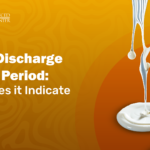Prostate cancer stands as a significant concern for aging men, prompting inquiries into the feasibility of a definitive cure. Research indicates a steady increase in prostate cancer incidence over the past decade, with projections suggesting a four-fold rise in the number of men over 65 years between 2000 and 2050. However, despite advancements in research and treatment modalities, achieving a “permanent” cure for prostate cancer remains a complex challenge, as treatment outcomes vary significantly among individuals.

Treatment Options for Prostate Cancer
Treatment options for prostate cancer include surgery, radiation therapy, hormone therapy, chemotherapy, and immunotherapy. Let’s break down what each of these treatments entails:
1. Surgery: This involves removing the prostate gland, where the cancer is located. Surgery can be highly effective, especially for localised prostate cancer. However, like any surgery, there are risks and potential side effects to consider.
2. Radiation Therapy: This treatment uses high-energy rays to target and kill cancer cells. It can be delivered externally or internally (brachytherapy). Radiation therapy may be used alone or in combination with other treatments.
3. Hormone Therapy: Prostate cancer often relies on male hormones (such as testosterone) to grow. Hormone therapy aims to block the production or action of these hormones, slowing down or stopping cancer growth.
4. Chemotherapy: This involves using drugs to kill cancer cells throughout the body. Chemotherapy is typically used when prostate cancer has spread to other parts of the body and is no longer responding to hormone therapy.
5. Immunotherapy: This treatment helps the body’s immune system fight cancer. It works by boosting the body’s natural defences or by targeting specific proteins on cancer cells.
Importance of Early Detection
Early
detection of prostate cancer is crucial for improving treatment outcomes. It allows for timely intervention, increasing the chances of successful treatment and potential cure. Screening methods like PSA testing and digital rectal exams help identify the disease at its earliest stages, enabling individuals to explore various treatment options before the cancer progresses. Prioritising early detection through regular screenings and proactive healthcare practices is essential in effectively managing prostate cancer.
The
prostate-specific antigen (PSA) test plays a crucial role in detecting prostate cancer early. While it has some limitations, including potential false positives, PSA testing remains an essential tool in identifying individuals at risk and initiating timely interventions.
Final words
Healthcare providers guide patients through screening complexities, empowering informed decisions. While a “permanent” cure for prostate cancer isn’t guaranteed, tailored treatments focus on eliminating cancer and preventing recurrence. The best approach is often a combination of treatments tailored to individual needs and preferences, with a focus on both eliminating cancer and preventing its return. Discussion with healthcare providers is key for proactive management and better outcomes.
Take Control of Your Prostate Health with Excel Urology
If you have concerns about prostate cancer or need guidance on screening and treatment options,
Excel Urology is here to help.
Schedule a consultation today to take control of your prostate health and explore personalised treatment plans tailored to your individual needs. Don’t wait – early detection and proactive management are key to better outcomes.












